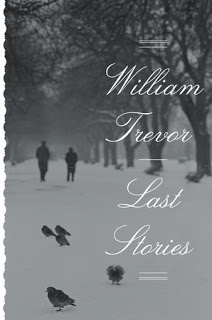In my SleuthSayers post this week, I talk about suspense in fiction that wouldn’t be classified as suspense fiction—a bit of advance work or at least advance thinking for the presentation I’m doing for the Spring Writing Intensive at St. John’s College in Annapolis.
Here’s a quick excerpt from the post, giving away the authors whose work I’m examining briefly in the post (if not in the presentation later):
I’m writing this post just as news comes out about the death of Philip Roth, one of my own favorite novelists, and earlier this week I picked up the collection Last Stories by William Trevor, who died in 2016—another favorite writer and one of the great masters of the short story, not just now but ever. Neither of these writers is known for flashy, grabby openings; in fact, the New York Times‘ book review of Trevor’s Last Stories commented directly on his low-key approach: “Most notably, his stories open with comments so blandly informational, so plain and unnoticeable, that they arouse no expectation and appear to promise little.”And yet, I find myself drawn in quickly to Trevor’s stories, to stakes which are at once high but muted, their intensity downplayed but maybe all the more engaging for it…
